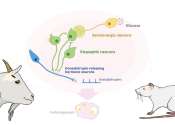Depression is a state of low mood and aversion to activity that can affect a person's thoughts, behaviour, feelings and physical well-being. Depressed people may feel sad, anxious, empty, hopeless, helpless, worthless, guilty, irritable, or restless. They may lose interest in activities that once were pleasurable, experience loss of appetite or overeating, or problems concentrating, remembering details or making decisions; and may contemplate or attempt suicide. Insomnia, excessive sleeping, fatigue, loss of energy, or aches, pains or digestive problems that are resistant to treatment may be present.
Depressed mood is a normal reaction to certain life events, a symptom of some medical conditions (e.g., Addison's disease, hypothyroidism), various medical treatments (e.g., hepatitis C drug therapy), and a feature of certain psychiatric syndromes.



